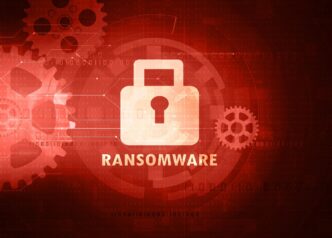A high court in the Indian state of Karnataka has ordered the government to block encrypted email provider Proton Mail throughout the country. The decision comes in response to a legal complaint filed by M Moser Design Associated India Pvt Ltd, a private firm, in January 2025.
On April 29, Justice M. Nagaprasanna of the Karnataka High Court directed the central government to act under Section 69A of the Information Technology (IT) Act, 2008. This section, combined with Rule 10 of the 2009 IT Rules, allows the government to block access to specific information in the interest of national security or public order.
Until the official government proceedings conclude, the court has ordered the immediate blocking of the “offending URLs” associated with Proton Mail. This temporary action effectively pushes India closer to a Proton Mail ban, even though the service remains accessible in the country at the time of writing.
Court Acts on Complaint Involving Abusive Emails and Deepfakes
The legal complaint that triggered the ban request accused unknown individuals of sending offensive and harmful emails to the company’s staff. According to reports from LiveLaw, the emails contained obscene and abusive language, sexually explicit content, and disturbing deepfake imagery generated using artificial intelligence.
The company sought legal intervention after claiming that Proton Mail’s strong privacy features made it impossible to trace the culprits. The email service uses end-to-end encryption, which prevents even the company itself from accessing the contents of user messages. This security feature, while lauded for privacy, can complicate criminal investigations.
Justice Nagaprasanna’s ruling reflects growing concern among Indian authorities over encrypted communication platforms. He stated that the central government must take swift action under the IT Act to initiate formal blocking procedures. Until then, URLs connected to the email content must be blocked immediately.
The Indian Ministry of Electronics and Information Technology (MeitY) has yet to publicly respond to the court order. The Hacker News has reached out to Proton Mail for comment, but the Swiss company has not yet issued a statement.
This Isn’t the First Threat of a Proton Mail Ban in India
This marks the second time Proton Mail has faced scrutiny from Indian authorities. In early 2024, the service came under fire after media reports claimed it was used to send hoax bomb threats to schools and public institutions in the country. The company then issued a public statement asserting its stance on lawful usage.
“Proton is resolutely against the use of our services for purposes that violate Swiss law,” the company stated at the time. While Proton Mail cannot hand over data to foreign governments due to strict Swiss privacy laws, it does cooperate with Swiss authorities. If requested by them, data may be shared with international agencies through official legal channels.
Proton Mail emphasized that end-to-end encryption protects the privacy of users’ emails, files, calendars, and passwords. However, the company made it clear that illegal use of its platform will not be tolerated.
Still, its strict commitment to privacy often clashes with countries seeking to trace cybercriminals or bad actors using the platform for malicious purposes. India, like many nations, continues to struggle with the balance between digital privacy and national security.
The final outcome now rests with the Indian government. If it chooses to proceed with a full ban under Section 69A, Proton Mail could be formally blocked in India in the coming weeks. For now, users in India still have access, though it remains uncertain for how long.
This ongoing case could set a precedent for how India handles other encrypted services in the future. Privacy advocates, legal experts, and digital rights organizations will be watching closely.













